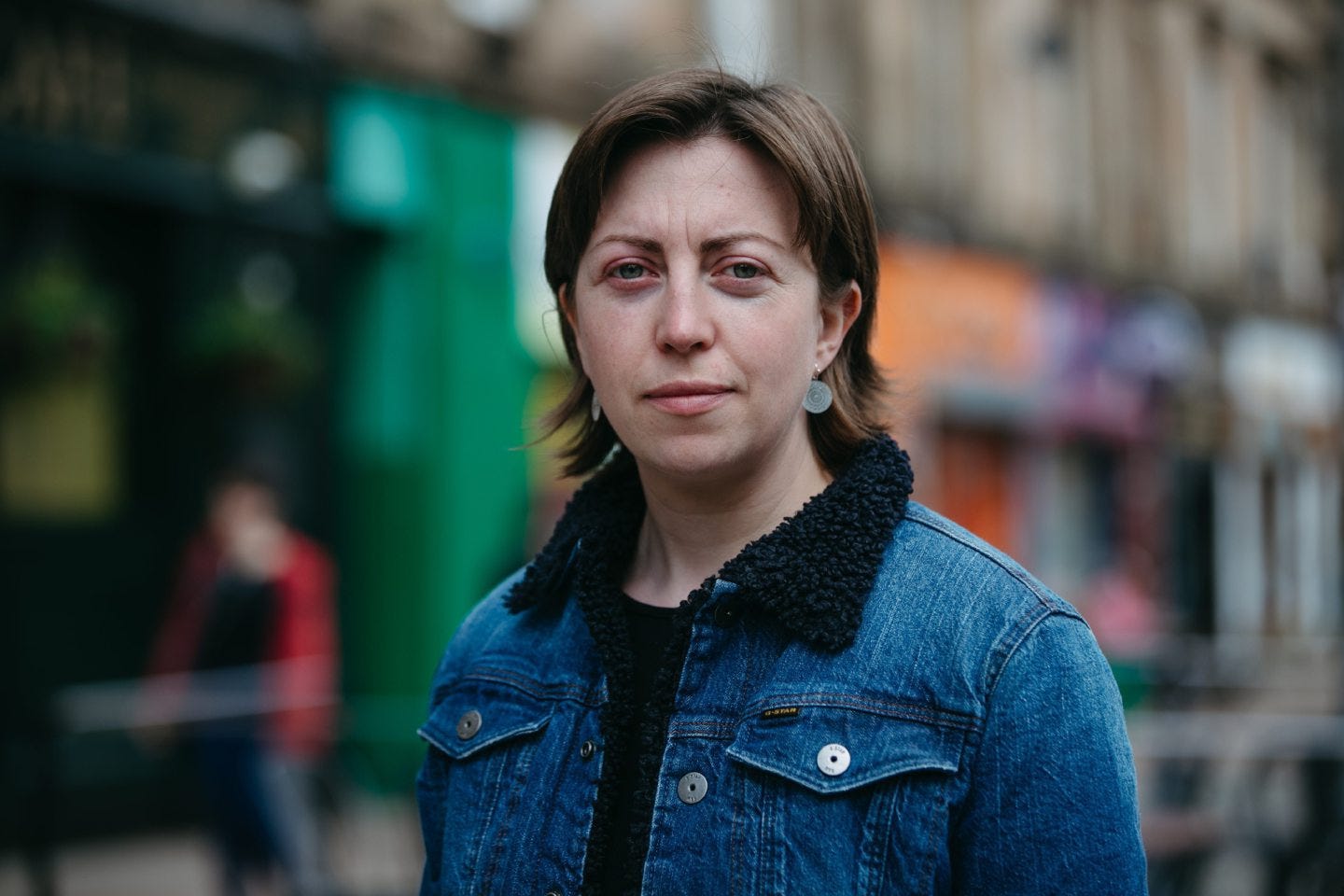© Andrew Cawley
As a “discontented” teenager in Shetland, Jen Stout found comfort and escape in the Russian language and tales of intrepid women war reporters - Anna Politkovskaya and Martha Gellhorn in particular.
Although life, a pandemic, and lack of money kept getting in the way, she eventually succeeded in pausing her career as a BBC Scotland journalist to take up a nine-month scholarship in Russia … in November 2021, three months before it invaded Ukraine to take Kyiv. She left Russia but only as far as Vienna before heading back into Ukraine via Romania with a rucksack, a handful of hastily assembled freelance contracts, and a head full of Martha Gellhorn.
In Night Train to Odesa: Covering the Cost of Russia’s War – published today by Polygon - Jen recounts her war on the Ukrainian-Romanian border, in Odesa, Kyiv, Kharkiv, Lviv, and in the towns - Chasiv Yar and Siversk - that lie on the new frontline. Like Gellhorn, she does not attempt to hide the narrator. We experience Europe’s biggest land war since 1945 through the eyes of a war reporter, photojournalist, and cultural observer and through her conversations with soldiers, drone operators, social activists, railway workers, and refugees.
“I do believe in an element of objectivity and neutrality," she told me in a New Books Network interview. "But this is about fascism right now, just as it was in the 1930s. And [Gellhorn] rallied against that, thought journalism could be a powerful tool to warn of the rise of fascism, and was hugely disillusioned when nobody really listened in time. So, yes, those kinds of writers have always hugely, hugely inspired me – how to combine reporting and telling the truth with moving people with emotions … I've read lots of books by correspondents and what I always liked were the ones where the reporter was not invisible … There’s a style of writing [in which] … the correspondent moves from place to place but you don't really know how they get there or who they're with or what they're feeling. They just give you very straight reporting, and I always loved reading books where you got a feeling of their inner emotions … and what it was actually like to do this … and how they felt about the situation”.
At an army fundraiser in a Kharkiv bunker, she has an epiphany about the nature of armed resistance in Ukraine. “What really struck me was that there were soldiers there who'd just come back from the front, which was just outside the city. And there were people there who had brothers and sisters and mothers and fathers who were at the front line. And I thought: this isn't the army as I would understand it. For me, the army is something distant. Now, for these people, the army is your immediate family. It's the people you know who are keeping you safe just a few miles away. I will never forget that kind of realisation, that feeling of how important that was”.
At the end of the book, we learn that two memorable figures - writer Victoria Amelina and drone operator Vladislava Chernykh - have been killed. This is a brutal reminder of a central theme of the book - how central women are to Ukraine’s war effort. “You can't underestimate the significance of Ukraine's civic networks, which were there from Maidan times, or before - from the previous revolution,” says Jen. “They are absolutely crucial and women are absolutely crucial within that. So many of my friends are volunteers if they're not in the army, and many of those are women. I really wanted specifically to mention Victoria Amelina and Vladislava Chernykh. I want us to remember their names, remember their contribution … I think that we, in life, we make these bargains that we're not even aware of - with God almost - that, you know, yes, people will die and maybe I'll know some of them, but not that one … Both of those women have contributed so much to their country, but also to everybody, to all of us, for peace in Europe, for freedom in Europe as well. I know that might sound cheesy, but I don't care. I think that's really true”.
For my Writers’ Writers tip sheet, Jen (unsurprisingly) chose The Face of War: Writings from the Frontline by Martha Gellhorn (Eland, 2016 — first published in 1959), The Letters Of Martha Gellhorn edited by Caroline Moorehead (Chatto & Windus, 2006), and Island by Aldous Huxley (Vintage Classics, 2005 — first published in 1962).





